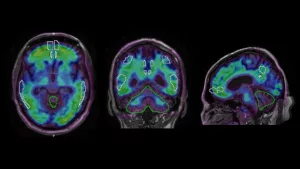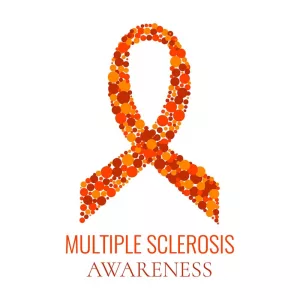Your feet can feel tingly after remaining in one position for an extended period. Still, persistent tingling might indicate an underlying medical problem, such as diabetes or kidney failure, among others.
Tingling in the feet is a frequent sensation and often isn’t cause for alarm.
For instance, you might notice a “pins and needles” feeling in your feet after sitting too long. That sensation usually subsides once you move.
However, ongoing tingling in the feet can be a signal of an underlying illness.
Continue reading to explore possible causes of tingling in the feet along with how they’re diagnosed and treated.

Chronic conditions that could cause tingling in feet
The chronic ailments below can lead to tingling or numbness in the feet.
1. Diabetes and diabetic neuropathy
Diabetes is a common reason for persistent tingling in the feet. Diabetic neuropathy is nerve damage that results from elevated blood sugar levels.
Other diabetes symptoms may include:
- frequent urination
- intense thirst
- dry mouth
- itchy skin
- fruity-smelling breath
- pain or numbness in the hands
- pain or numbness in the feet
- increased appetite
- unexpected weight loss
- slow wound healing
- recurrent yeast infections
- drowsiness or fatigue
- vision changes
- nausea and vomiting
To diagnose diabetes, a clinician will:
- take a medical history
- perform a physical exam
- order blood tests
Diabetes is managed through lifestyle adjustments and medications, including insulin.
2. Multiple sclerosis (MS)
Multiple sclerosis (MS) is a disorder of the central nervous system in which the immune system attacks myelin, the insulating layer around nerves.
This leads to nerve injury and disrupted communication between the brain and the rest of the body.
Tingling or numbness is a frequent MS symptom and can affect the face, hands, feet, and other body parts. According to the National Multiple Sclerosis Society, numbness or tingling may be among the first signs of MS.
Other MS symptoms may include:
- fatigue
- weakness
- pain and itching
- difficulty with gait and balance
- muscle spasms
- vision problems
- dizziness
- bladder and bowel dysfunction
- sexual difficulties
- cognitive issues
- emotional changes
- depression
There is no single lab test that definitively diagnoses MS. Doctors use a combination of examinations and tests to find the cause of tingling in the feet.
Tests used to evaluate MS may include:
- MRI
- lumbar puncture
- evoked potential testing
- neurological exam assessing reflexes, coordination, balance, and cranial nerve function
- blood tests to exclude other conditions
- spinal fluid analysis
There’s no cure for MS, but multiple treatments can slow disease progression and ease symptoms. Options may include oral medications, injections, and infusion therapies.
3. Hypothyroidism
Hypothyroidism occurs when the thyroid gland is underactive and does not produce enough thyroid hormone for the body’s needs.
Early signs of hypothyroidism can be subtle and mistaken for other issues. These may include:
- fatigue
- weight gain
- puffy facial appearance
- heavy or irregular menstrual cycles
- thinning hair
- slow heart rate
- muscle weakness, aches, stiffness, and tenderness
- joint pain, swelling, and stiffness
- goiter
- memory difficulties
If untreated, hypothyroidism can cause peripheral neuropathy — damage to peripheral nerves — resulting in tingling and numbness in the feet.
Doctors diagnose hypothyroidism with a blood test for thyroid-stimulating hormone (TSH). Elevated TSH usually indicates underactive thyroid function.
Treatment involves taking levothyroxine (brands include Levoxyl, Synthroid, and Unithroid). Clinicians monitor TSH and adjust the dose as needed.
Treatment for hypothyroidism is generally lifelong.
4. Tarsal tunnel syndrome (TTS)
Tarsal tunnel syndrome (TTS) produces pain, tingling, or burning across the ankle, heel, or foot. It results from compression of the tibial nerve, which runs along the inner ankle and foot.
To diagnose TTS, a clinician will review your symptoms and medical history.
They may perform a Tinel’s sign test, pressing on the tibial nerve—if this provokes tingling in the foot, the result supports a TTS diagnosis.
Treatment for TTS depends on severity and individual factors. Possible approaches include:
- rest
- nonsteroidal anti-inflammatory drugs (NSAIDs)
- orthotic devices
- physical therapy
- corticosteroid injections
Surgery to relieve pressure on the nerve may be necessary if symptoms are severe or do not improve with conservative care.
5. Kidney failure
Kidney failure can lead to tingling in the feet. Diabetes and high blood pressure are common causes of kidney failure, according to the National Kidney Foundation.
Tingling from kidney failure may be accompanied by:
- pain and numbness in the legs and feet
- muscle cramping and twitching
- muscle weakness
To evaluate whether kidney failure is behind tingling feet, a physician might perform:
- neurological exam
- electromyography (EMG) to assess muscle activity
- nerve conduction studies
- blood tests
Treatment options for kidney failure include dialysis and kidney transplantation.
6. Charcot-Marie-Tooth (CMT) disease
Charcot-Marie-Tooth (CMT) disease comprises a group of inherited peripheral nerve disorders that may cause:
- tingling, numbness, or burning in the hands and feet
- muscle wasting and weakness
- gait problems, such as an awkward stride
- high arches or hammer toes
- muscle contractures
To diagnose CMT, a neurologist will review family history and perform a neurological exam. Tests may include:
- blood tests for genetic markers
- EMG
- nerve biopsy
- nerve conduction study
There’s no cure for CMT, but treatments can help maintain function and manage symptoms. These may include:
- occupational therapy for daily tasks
- physical therapy to slow muscle weakness and deformity
- assistive devices like walking aids
- braces or splints
- medications for pain control
- limiting alcohol intake
- surgical procedures, such as arthrodesis or corrections for foot deformities
7. Autoimmune diseases
Autoimmune disorders occur when the immune system attacks the body’s own tissues. Some of these conditions can cause tingling in the feet, including:
- lupus
- Sjögren’s syndrome
- Guillain-Barré syndrome
- celiac disease
- rheumatoid arthritis (RA)
To determine whether an autoimmune disease is the cause, a clinician may:
- take medical and family history
- do a physical exam
- order multiple blood tests
Treatment varies by condition and may include dietary adjustments, medications, and supportive therapies.
8. Infections
Several infections can inflame nerves and provoke tingling in the feet. These include:
- Lyme disease
- shingles
- hepatitis B and C
- HIV
- AIDS
- Hansen’s disease
If you suspect an infection, see a healthcare provider. They’ll take a history, do an exam, and likely run blood tests to identify infectious causes.
Treatment depends on the specific infection and generally includes appropriate medications.
9. Alcohol use disorder and alcoholic neuropathy
Chronic heavy drinking can lead to alcoholic neuropathy, which damages peripheral nerves. Approximately 46% of people with long-term alcohol misuse develop peripheral neuropathy.
Alcoholic neuropathy can cause tingling in the feet, hands, or limbs and may persist from months to years.
Other symptoms may include:
- muscle weakness and cramps
- digestive problems
- incontinence
- nausea and vomiting
Alcohol misuse is also linked to poor nutrition and vitamin deficiencies, which can complicate identifying alcohol as the cause of foot tingling.
Be candid about your alcohol consumption with your clinician so they can determine the cause and recommend the best treatment.
Possible tests include:
- neurological exam
- nerve biopsy
- nerve conduction study
- EMG
- endoscopy
- blood tests
Treatment focuses on stopping alcohol use and addressing alcohol use disorder. Other elements of care may include:
- vitamin supplementation
- medications
- physical therapy
Note that symptoms of alcoholic neuropathy can persist even after stopping drinking.
Other causes of tingling in feet
Many other factors can cause tingling sensations in the feet.
10. Pregnancy
Tingling in the feet is common during pregnancy. As the uterus enlarges, it can press on nerves that travel down the legs, producing “pins and needles.”
You may relieve tingling by:
- resting with your feet elevated
- changing positions frequently
- staying well-hydrated
Consult your doctor if tingling gets worse, persists, or is accompanied by weakness or swelling, as it could indicate a more serious issue.
11. Vitamin deficiency
Insufficient intake of certain vitamins, especially B vitamins, can cause tingling in the feet. Deficiencies may stem from poor diet or underlying disease.
Vitamin B12 deficiency is associated with peripheral neuropathy. If you lack B12, you may experience:
- fatigue
- shortness of breath
- dizziness
- tingling and cold sensations in the hands and feet
- headache
- chest discomfort
- digestive disturbances
- nausea
- an enlarged liver
To diagnose a deficiency, a clinician will review your history, perform an exam, and check blood levels.
Treatment may involve supplements or other therapies, depending on the underlying cause.
12. Medication use
Some medicines can cause tingling in the feet as an adverse effect. Common culprits include chemotherapy agents and drugs used for HIV/AIDS.
Other medicines associated with tingling are those used to treat:
- seizures
- heart conditions
- high blood pressure
If you experience tingling while taking a medication, discuss it with your doctor. They can assess whether the drug is responsible and whether dose adjustments or substitutions are needed.
13. Pinched nerve
A pinched nerve in the spine can produce tingling that radiates to the feet. Causes include injury, inflammation, or a herniated disc.
Other signs of a pinched nerve may include:
- pain
- sensory changes in the feet
- reduced range of motion
Diagnosis may include:
- medical history and physical exam
- EMG
- MRI
- X-ray
- ultrasound
Treatment options include:
- rest
- home exercises and stretches
- over-the-counter pain relievers and NSAIDs
- prescription medications such as oral steroids
- physical therapy
- surgery
14. Toxin exposure
Contact with certain chemicals and toxins can produce toxic neuropathy. Symptoms can include:
- tingling
- numbness
- pain
- weakness
- difficulty walking
Toxins that may cause foot tingling if ingested or absorbed through the skin include:
- lead
- arsenic
- mercury
- black mold
- thallium
- silver
- antifreeze
- glue
- alcohol
Diagnosing toxin exposure as the cause of tingling can be challenging.
A clinician will take a thorough history, including work and home environments, diet, and supplements, and may order blood tests.
Treatment can involve medications, workplace or home safety changes, and reducing exposure to the offending substances.
15. Hyperventilation
Hyperventilation—breathing too quickly and deeply—lowers carbon dioxide in the blood, which can cause lightheadedness, shortness of breath, and anxiety.
Reduced carbon dioxide can produce tingling in the hands or feet.
Hyperventilation may be caused by emotional stress or by conditions such as:
- anxiety disorders
- lung infections
- lung diseases
- heart conditions
- diabetic ketoacidosis
- altitude sickness
When evaluating hyperventilation, a clinician will review other symptoms and your medical history, perform a physical exam, and may run blood tests to check for infections or other conditions.
Treatment focuses on addressing the underlying cause of hyperventilation.
Home techniques to manage an episode aim to slow breathing and raise carbon dioxide levels. Try:
- breathing through pursed lips
- breathing into a paper bag (avoid this if you have heart or lung disease)
- diaphragmatic (belly) breathing
16. Unknown causes
Sometimes tingling in the feet has no identifiable cause; doctors call this “idiopathic.”
A clinician will perform a physical exam and run tests to exclude treatable causes.
Management may include pain control, safety measures, and specialized footwear.
When to see a doctor
See a healthcare provider if you have tingling in your feet that:
- doesn’t resolve
- progresses
- is accompanied by pain
- impairs your ability to walk
You may be at increased risk of falls if you cannot feel your feet properly.
If tingling is accompanied by a severe headache, facial numbness, or sudden weakness, seek immediate medical care. These could be signs of a stroke, which requires urgent treatment.
Frequently asked questions
How do I get my feet to stop tingling?
Treatment depends on the cause. If tingling is due to sitting too long, walking will usually restore circulation. If an underlying condition is responsible, you may need medical therapies such as medications, physical therapy, or surgery.
Can high blood pressure cause tingling in feet?
High blood pressure raises the risk of conditions that can cause foot tingling, like diabetes and kidney disease. Some antihypertensive medications can also produce tingling as a side effect.
What are the first signs of neuropathy in your feet?
Early neuropathy signs may include numbness, tingling, reduced sensitivity, burning sensations, or sharp pain.
Takeaway
Tingling or numbness in the feet is common and often resolves on its own.
But persistent tingling or tingling accompanied by other symptoms may signal an underlying health issue.
Consult a healthcare provider if your foot tingling doesn’t improve after a few days so they can identify the cause and recommend an appropriate treatment plan.
























Leave a Reply
You must be logged in to post a comment.